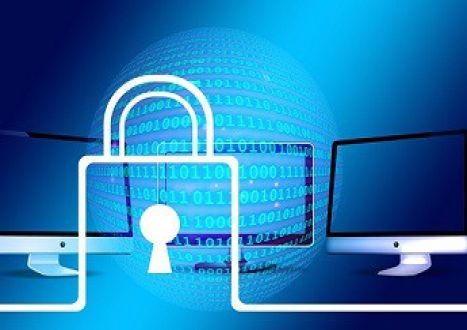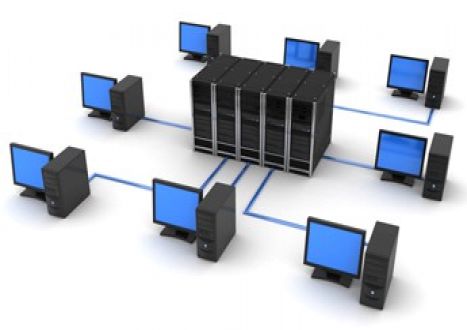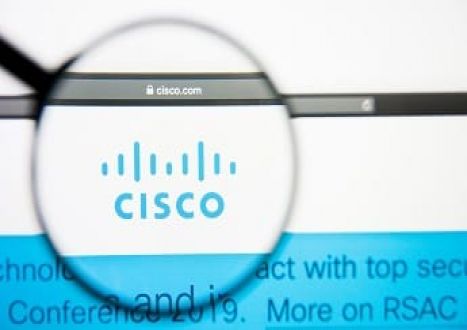- Home
- Video Courses
- Certifications
- 820-605: Cisco Customer Success Manager (CSM) Dumps


820-605: Cisco Customer Success Manager (CSM) Certification Video Training Course
820-605: Cisco Customer Success Manager (CSM) Certification Video Training Course includes 24 Lectures which proven in-depth knowledge on all key concepts of the exam. Pass your exam easily and learn everything you need with our 820-605: Cisco Customer Success Manager (CSM) Certification Training Video Course.
Curriculum for Cisco CSM 820-605 Certification Video Training Course







820-605: Cisco Customer Success Manager (CSM) Certification Video Training Course Info:
The Complete Course from ExamCollection industry leading experts to help you prepare and provides the full 360 solution for self prep including 820-605: Cisco Customer Success Manager (CSM) Certification Video Training Course, Practice Test Questions and Answers, Study Guide & Exam Dumps.
Cisco 820-605 Training: Customer Success Manager Certification Prep
Course Overview
Introduction to the Cisco Customer Success Manager Training
The Cisco 820-605 Customer Success Manager training is designed to help learners master the practices, concepts, and methodologies required to thrive in customer success roles within the digital era. As organizations increasingly adopt subscription-based services and cloud solutions, the role of a Customer Success Manager has become pivotal in ensuring customers realize the full value of their technology investments. This training course provides a deep dive into the principles of customer lifecycle management, adoption strategies, value realization, and business alignment. It bridges the gap between technical solutions and customer business outcomes, ensuring professionals are prepared not only to pass the 820-605 exam but also to function effectively as trusted advisors in their organizations.
Importance of the Cisco 820-605 Certification
The Cisco 820-605 certification is recognized globally as a benchmark of customer success expertise. Earning this certification validates that an individual possesses the skills to guide customers in achieving their desired business outcomes while maximizing the value of Cisco solutions. In today’s competitive IT landscape, professionals who demonstrate strong customer advocacy and success management are highly sought after. The certification also signals to employers that the certified professional can manage post-sales relationships, reduce churn, and expand customer loyalty, which directly contributes to recurring revenue and long-term business growth.
Objectives of the Training Program
This training program is carefully structured to achieve several key objectives. First, it prepares participants to confidently approach the Cisco 820-605 exam by covering the exam blueprint in depth. Second, it develops critical skills around customer engagement, lifecycle management, adoption frameworks, and value demonstration. Third, it helps learners practice applying theoretical knowledge to real-world scenarios, enabling them to work effectively with customers across diverse industries. Lastly, the program equips learners with leadership qualities that enhance their ability to build trust, manage expectations, and influence stakeholders toward long-term partnerships.
The Role of Customer Success in the Digital Economy
The digital transformation era has redefined how businesses procure, deploy, and measure technology. Subscription models, cloud adoption, and recurring services have shifted the focus from one-time transactions to long-term customer satisfaction and retention. In this context, the Customer Success Manager plays a strategic role by ensuring that customers continue to derive measurable value from their technology investments. This training places the learner at the center of this transformation, giving them the tools to align Cisco solutions with customer goals, monitor usage, and create adoption strategies that drive sustainable results.
Structure of the Course
The training course is organized into multiple interconnected parts that reflect the flow of a real customer engagement lifecycle. It begins with foundational knowledge and gradually advances into deeper, practical aspects of customer success. Each section is designed to be comprehensive, with detailed explanations, examples, and context that reinforce learning. The structure mirrors the exam blueprint to ensure complete coverage while adding depth that goes beyond exam preparation, making this training valuable both for certification and for real-world practice.
Learning Outcomes
Upon completing the course, learners will be able to articulate the role of a Customer Success Manager, analyze customer needs, design adoption strategies, implement success plans, and measure the impact of Cisco solutions on business outcomes. They will also have the confidence to manage challenging conversations, present data-driven value assessments, and proactively prevent churn by engaging customers at every stage of their journey. These outcomes not only prepare learners for the exam but also enhance their professional capabilities within any organization.
Course Modules
Module One: Understanding Customer Success Management
This module introduces the foundational concepts of customer success. Learners explore how the role differs from traditional account management, technical support, or sales. The module emphasizes the proactive and strategic nature of customer success, where the focus is not on solving problems after they occur but on preventing challenges through careful planning and engagement. Case studies illustrate how customer success has transformed the business models of major organizations, particularly in subscription-based industries. The learner gains a broad understanding of why the CSM role has become indispensable in modern enterprises.
Module Two: Customer Lifecycle and Journey Mapping
Customer success is best understood through the lens of the customer lifecycle. This module breaks down the lifecycle into distinct phases, including onboarding, adoption, value realization, and renewal. Learners gain insight into how customer expectations evolve at each stage and how a CSM must adapt their strategies accordingly. The module explores journey mapping techniques, where learners design a step-by-step visual of a customer’s interaction with a solution, highlighting potential challenges and intervention points. Real-world scenarios demonstrate how lifecycle management can prevent churn and increase satisfaction.
Module Three: Business Outcome Alignment
At the heart of customer success is the alignment between technology solutions and customer business outcomes. This module dives into the methodology of identifying customer goals, mapping them against Cisco solutions, and ensuring measurable results. Learners study frameworks that help in articulating value propositions in business terms, enabling them to communicate effectively with executives and stakeholders. Examples are drawn from diverse industries, showing how aligning technology with goals like revenue growth, cost reduction, or risk management drives stronger customer loyalty.
Module Four: Adoption Frameworks and Strategies
This module focuses on driving technology adoption, a critical aspect of customer success. Learners explore proven adoption frameworks that guide customers in using solutions to their fullest potential. The module emphasizes strategies for overcoming resistance to change, addressing skill gaps, and embedding technology into the daily workflows of customer organizations. It explains the difference between high-touch and low-touch adoption models and when to apply each. Through in-depth case discussions, learners gain the ability to craft tailored adoption strategies that suit different customer profiles.
Module Five: Value Realization and Measurement
Ensuring customers recognize the value of their investment is essential for renewals and expansions. This module trains learners in methodologies for defining success metrics, collecting data, and presenting outcomes in compelling ways. Participants learn how to construct executive business reviews, prepare success reports, and use data analytics to showcase results. The module also explores how to turn satisfied customers into advocates who promote Cisco solutions within their industries, creating a cycle of trust and growth.
Module Six: Renewal and Expansion Strategies
The final module of this section examines how customer success directly influences renewals and expansions. Learners study how proactive engagement ensures contract renewals and opens the door to cross-sell and up-sell opportunities. The module discusses strategies for anticipating renewal risks, identifying growth opportunities, and positioning Cisco as a long-term partner rather than just a vendor. Practical examples demonstrate how effective CSMs transform satisfied customers into loyal clients who continuously expand their investment in Cisco solutions.
Module Seven: Professional Skills for Customer Success Managers
Beyond technical and strategic knowledge, this module develops the soft skills necessary for success. Learners focus on communication, negotiation, conflict resolution, and executive presence. The module emphasizes the importance of empathy, active listening, and cultural awareness in building trust with customers worldwide. Through role-play scenarios and guided exercises, learners refine their ability to handle challenging conversations, influence decision-makers, and maintain long-term positive relationships.
Module Eight: Preparation for the Cisco 820-605 Exam
This module provides targeted preparation for the Cisco 820-605 certification exam. Learners review the exam structure, question types, and key knowledge areas. The module highlights exam strategies, such as time management, scenario analysis, and critical thinking. Practice questions and mock scenarios are included to build confidence and familiarity with the testing environment. By the end of this module, participants will feel equipped not only with the theoretical knowledge but also with the practical exam-taking skills required for success.
Course Requirements
Introduction to Course Requirements
The Cisco 820-605 Customer Success Manager training course is designed to be accessible yet rigorous. While it accommodates learners with varying levels of experience, there are several requirements that ensure participants gain the maximum benefit from the program. These requirements are not meant to discourage learners but to set realistic expectations and create a structured foundation for success. Understanding these requirements is crucial for both exam readiness and the development of practical skills that extend beyond certification.
Educational Background Expectations
Participants are not mandated to hold a specific degree, but a foundational understanding of business, technology, or management principles is highly beneficial. Learners with backgrounds in business administration, computer science, engineering, or information technology will find the course concepts familiar, while those from non-technical fields may need to dedicate additional study time to grasp certain terminologies and frameworks. A general comfort with reading technical documentation and interpreting business outcomes is expected, as much of the course revolves around bridging the two domains.
Professional Experience Recommendations
Although not strictly required, professional experience in roles such as account management, project management, customer support, or sales provides an advantageous starting point. Learners who have interacted with clients or managed customer relationships will find it easier to contextualize the practices discussed in the training. Exposure to subscription-based business models, cloud services, or IT service delivery further strengthens the learner’s foundation. Those without professional experience should be prepared to immerse themselves in case studies and simulated exercises to compensate for practical exposure.
Technical Knowledge Requirements
The Cisco 820-605 exam does not test deep technical skills but assumes that candidates can understand the role of Cisco solutions in addressing customer needs. Participants should be familiar with basic networking concepts, cloud adoption trends, and software-as-a-service models. The ability to comprehend technical documentation, dashboards, and performance reports is essential, as the Customer Success Manager often interprets such information for business decision-makers. A working knowledge of Cisco’s portfolio is helpful, though not mandatory, as the course provides relevant context throughout.
Business Acumen and Analytical Skills
One of the key requirements for success in this training is strong business acumen. Learners must be able to interpret customer business goals, analyze data related to solution usage, and connect technical outcomes to measurable business results. Analytical thinking is crucial for identifying trends, diagnosing adoption challenges, and creating actionable strategies. The ability to read financial indicators, such as cost reduction or revenue growth, and link them to technology usage is also beneficial. The course builds these skills progressively, but learners with prior exposure will advance more quickly.
Communication and Interpersonal Skills
Customer success is as much about people as it is about processes. Learners should enter the program with a readiness to strengthen their interpersonal skills. Clear communication, empathy, and the ability to listen actively are indispensable for success in both the training and the role itself. The course will provide scenarios and role-play exercises to practice these skills, but participants must be willing to engage fully and reflect on their own strengths and weaknesses. A strong grasp of written and spoken English is required, as the exam and training materials are delivered in English.
Time Commitment and Study Discipline
The training program and exam preparation require a significant time commitment. Learners should expect to dedicate regular hours each week to lectures, readings, case studies, and practice exams. The depth of content, combined with the need for reflection and practice, means that success cannot be achieved through last-minute study alone. Self-discipline, consistency, and proactive engagement are key requirements. Learners who create a structured study schedule and adhere to it are more likely to achieve both certification and mastery of skills.
Access to Learning Resources
To fully engage with the training, participants need access to specific resources. A reliable computer with internet connectivity is essential, as much of the training is delivered digitally. Participants should be able to run Cisco learning platforms, access online case studies, and join virtual labs or simulations. Having access to Cisco documentation, whitepapers, and industry research reports further enriches the learning process. Learners are encouraged to maintain a personal study repository where they can organize notes, frameworks, and practice materials.
Engagement with Cisco Learning Platforms
The Cisco Learning Network and related platforms play a critical role in the course. Learners should create accounts, explore forums, and become comfortable navigating Cisco’s digital learning environment. Engaging with online communities is a requirement for deepening understanding, as peer discussions often provide diverse perspectives and practical insights. The ability to collaborate with others, share knowledge, and ask questions openly contributes to a richer learning experience and better exam preparation.
Commitment to Real-World Application
The training emphasizes application of knowledge rather than rote memorization. Learners are required to think critically about how each concept translates into real-world scenarios. This involves analyzing customer case studies, designing adoption strategies, and presenting business outcomes. Participants must be willing to apply theoretical frameworks to practical situations, even if it means stepping outside their comfort zone. This requirement ensures that learners graduate from the program with the ability to function effectively in professional environments.
Mindset and Attitude Requirements
Beyond technical or business knowledge, mindset is perhaps the most significant requirement. A learner entering this course must adopt a customer-centric outlook, recognizing that success is defined not by technology alone but by the outcomes it creates for customers. Patience, adaptability, and resilience are essential traits. The training includes situations that mimic real customer challenges, and learners are expected to approach them with creativity and persistence. Those who embrace learning as an ongoing journey will thrive not only in the exam but also in the profession.
Language and Cultural Awareness
As customer success roles are often global, learners are required to be open to diverse cultural perspectives. The course introduces scenarios involving international customers, each with unique communication styles and business practices. Learners must be ready to develop cultural intelligence, adapting their approach to suit various contexts. While fluency in English is necessary for the training, awareness of multilingual environments and cultural differences adds a valuable dimension to the learning experience.
Technological Tools and Software Proficiency
Participants should have basic proficiency with productivity tools such as word processors, spreadsheets, and presentation software, as these will be used to create adoption plans, success reports, and presentations. Familiarity with customer relationship management platforms, data visualization tools, or project management software is advantageous but not strictly required. The course will introduce certain templates and models that require learners to work digitally, so comfort with collaborative tools such as shared drives or online meeting platforms is necessary.
Financial Investment in Learning
The Cisco 820-605 certification exam carries an associated cost, and learners should be prepared for this investment. Additionally, access to study guides, practice exams, and supplemental resources may involve additional expenses. While the training course provides comprehensive coverage, learners are encouraged to allocate funds for optional resources that enhance understanding. Viewing these costs as an investment in professional growth helps learners maintain motivation and commitment throughout the journey.
Institutional and Organizational Support
For learners sponsored by employers, institutional support becomes an important requirement. Organizations often provide time allowances, access to internal tools, or mentorship from experienced staff. Learners are encouraged to seek such support actively, as it reinforces the training experience and creates opportunities to practice customer success strategies in real work environments. For self-funded learners, building a support network through online forums and professional groups can serve as a substitute for organizational backing.
Preparation for the Exam Environment
A critical requirement of the course is familiarity with the Cisco exam environment. Learners must register for the exam through Pearson VUE, understand the testing conditions, and prepare for a proctored digital or physical setting. Practice under timed conditions is strongly recommended. Meeting this requirement ensures that knowledge is not undermined by anxiety or unfamiliarity with the testing interface. Confidence in navigating the exam platform is as important as mastery of content.
Continuous Learning Beyond Certification
The Cisco 820-605 is not the end but a milestone in the learner’s journey. A requirement of the training is adopting the habit of continuous professional development. Cisco regularly updates its solutions, and the customer success profession evolves with market demands. Learners are expected to stay current by engaging with ongoing education, attending webinars, and participating in professional networks. This requirement ensures the certification remains relevant and the professional continues to provide value long after the exam is passed.
Ethical and Professional Standards
Finally, learners are required to uphold ethical and professional standards throughout the training. Customer success involves handling sensitive data, influencing decisions, and building trust with stakeholders. Integrity, confidentiality, and respect are non-negotiable aspects of the role. The course integrates these values into its case studies and discussions, requiring learners to reflect on how they will apply them in real-world practice. Meeting this requirement prepares professionals not only for certification but also for the responsibility that comes with the role.
Course Description
Introduction to the Cisco 820-605 Training
The Cisco 820-605 Customer Success Manager training course is designed as an immersive program that bridges the worlds of technology and business. It provides a clear pathway for learners to master the knowledge, skills, and mindset required to thrive in the role of a Customer Success Manager. Unlike traditional technical certifications that focus on configurations or troubleshooting, this course emphasizes value delivery, customer adoption, and business outcome alignment. The description of the course reflects its dual focus: preparing learners to excel in the Cisco 820-605 certification exam and equipping them with professional expertise that is transferable across industries.
Purpose of the Training Program
The purpose of this course extends far beyond exam success. It is crafted to prepare professionals for the realities of customer success roles, where responsibilities revolve around ensuring that customers achieve tangible value from their technology investments. The program empowers learners to understand customer needs deeply, map them to Cisco solutions, and create strategies that result in measurable business outcomes. This practical orientation ensures that upon completion, participants are not only exam-ready but also workforce-ready.
Coverage of the Exam Blueprint
The Cisco 820-605 exam is structured around specific knowledge domains, and this course follows that blueprint meticulously. Each module addresses a core area of customer success management, ranging from lifecycle engagement and adoption frameworks to renewal strategies and executive communication. Learners are guided through theoretical foundations before being exposed to practical applications, ensuring a holistic understanding. The exam content is seamlessly woven into the training narrative so that preparation for certification feels natural rather than forced.
Unique Features of the Course
This training program distinguishes itself through its focus on real-world application. Learners are presented with scenarios that mimic the challenges faced by Customer Success Managers in diverse industries. Interactive elements such as role-play exercises, success plan creation, and value assessment presentations give participants the opportunity to apply theory to practice. Another unique feature is the emphasis on both technical fluency and business language, enabling learners to translate Cisco capabilities into outcomes that resonate with executive stakeholders.
The Learning Experience
The course is structured to provide a dynamic and engaging learning experience. Rather than relying solely on lectures or reading materials, it integrates case studies, simulations, and reflective exercises. This ensures that learners not only absorb knowledge but also practice applying it in varied contexts. Each stage of the course builds upon the previous one, reinforcing understanding while gradually increasing complexity. The experience is designed to challenge learners intellectually while also building confidence in their professional abilities.
Alignment with Industry Demands
The role of a Customer Success Manager has emerged as one of the most critical functions in the subscription economy. This course reflects that demand by equipping professionals with the competencies that employers value most: the ability to drive adoption, demonstrate value, and secure renewals. By completing this training, learners position themselves at the forefront of a growing field where their expertise is not only recognized through certification but also validated through their ability to deliver measurable impact.
Outcomes of the Training Course
By the end of this course, participants will possess a comprehensive understanding of the customer lifecycle and the tools required to manage it effectively. They will know how to design adoption strategies, conduct business reviews, communicate value to executives, and anticipate renewal opportunities. Beyond these tangible skills, learners will also develop the confidence and professional presence required to lead customer engagements. The outcome is a well-rounded professional who can function as both a trusted advisor and a driver of business results.
Who This Course Is For
Aspiring Customer Success Managers
This course is particularly well-suited for individuals who aspire to begin a career in customer success management. It introduces them to the principles and practices of the profession while preparing them for certification that serves as a globally recognized credential. Aspiring professionals benefit from the structured nature of the program, which provides a roadmap for entering a dynamic and fast-growing field.
Existing Customer Success Professionals
For those already working in customer success roles, this course offers the opportunity to formalize and validate their expertise. Many professionals operate effectively in practice but lack structured knowledge of frameworks and methodologies. By undertaking this training, they gain theoretical depth that enhances their practical experience. The Cisco certification also serves as an external validation of their skills, boosting career progression and credibility.
Sales and Account Management Professionals
Sales executives and account managers often transition into customer success roles because of their close engagement with clients. This course is highly relevant for them as it shifts their perspective from closing deals to driving long-term customer value. It equips them with the ability to manage relationships beyond the point of sale, ensuring customer satisfaction and loyalty. The knowledge gained helps them become more strategic partners to their clients.
Technical Professionals Transitioning to Business Roles
Engineers, consultants, and technical specialists who wish to broaden their career horizons find this course particularly useful. It enables them to move from purely technical responsibilities to roles that combine technical fluency with business alignment. By learning how to communicate technical capabilities in business terms, they become more versatile professionals who can bridge the gap between technology and customer outcomes.
Leaders and Managers in Customer-Facing Roles
Team leaders, managers, and executives responsible for customer-facing functions also benefit from this training. The course equips them with insights into how customer success strategies can be embedded at an organizational level. It helps them guide their teams more effectively, establish customer success metrics, and align departmental goals with overall business outcomes. Leaders gain the knowledge needed to foster a customer-centric culture within their organizations.
Organizations Seeking to Build Customer Success Capability
The training is not limited to individuals; organizations also use it as a platform to strengthen their customer success capability. Companies investing in this program for their employees ensure that their teams operate with consistent frameworks and methodologies. This creates a unified approach to managing customers, improving the likelihood of achieving renewals, expansions, and advocacy. For organizations in transition to subscription-based models, this training becomes a strategic investment in long-term success.
Students and Recent Graduates
Students and recent graduates looking to enter the technology or business sectors find this course a powerful differentiator. While they may not have extensive professional experience, the training provides them with structured knowledge and a recognized credential that enhances employability. It introduces them to industry practices that are rarely covered in academic settings, giving them an advantage in the job market.
Career Changers Exploring New Paths
Professionals from unrelated fields who are seeking new career paths can also pursue this training. The principles of customer success are transferable across industries, making the Cisco 820-605 certification a gateway into the technology-driven subscription economy. For career changers, the course provides both a structured learning experience and a clear credential that signals readiness to potential employers.
Global Professionals in Multinational Environments
Customer success is a global function, and this course is designed to serve learners from diverse geographical and cultural contexts. Professionals working in multinational corporations find the training especially valuable as it addresses cultural awareness, global communication, and customer engagement strategies suited for diverse markets. By completing this course, global professionals enhance their ability to operate effectively in international environments.
Individuals Seeking Professional Growth
Even for those not directly pursuing customer success roles, this course offers substantial value as a professional development opportunity. The skills of communication, value articulation, and outcome alignment are applicable in many fields, including consulting, project management, and leadership. Learners seeking to expand their skill sets and future-proof their careers benefit from the comprehensive nature of the program.
Conclusion of Audience Alignment
Ultimately, this training is for anyone who recognizes the growing importance of customer success as a discipline and wants to position themselves at the center of this evolution. Whether an aspiring professional, a seasoned expert, a leader, or a student, the course provides tailored value that matches diverse goals. The inclusive design of the program ensures that each learner, regardless of background, emerges with enhanced knowledge, skills, and credentials.
Student Feedback
Similar Cisco Video Courses
























































Only Registered Members Can Download VCE Files or View Training Courses
Please fill out your email address below in order to Download VCE files or view Training Courses. Registration is Free and Easy - you simply need to provide an email address.
- Trusted By 1.2M IT Certification Candidates Every Month
- VCE Files Simulate Real Exam Environment
- Instant Download After Registration.
Log into your ExamCollection Account
Please Log In to download VCE file or view Training Course
Only registered Examcollection.com members can download vce files or view training courses.




